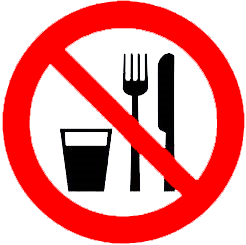 Intermittent fasting is a term buzzing around the health and fitness industry. It is being utilized to improve digestive health, assist weight loss, and simplify one’s lifestyle.
Intermittent fasting is a term buzzing around the health and fitness industry. It is being utilized to improve digestive health, assist weight loss, and simplify one’s lifestyle.
I began to incorporate what was explained to me as ‘eating windows’ after I had my son Sawyer. I was nursing and getting insanely hungry at night and eating all the things! I was eating far too many calories in a 24-hour period. I had to do something. I began with a 10-hour eating window. I ate all of my calories and drank all of my water within this 10-hour window. Consider the term ‘breakfast’; This refers to the meal that ‘breaks your fast’ – which is done daily. Intermittent fasting is not something unusual and curious, but is already a part of everyday, normal, life. At its very core, intermittent fasting simply allows the body to use its stored energy on burning fat.
Life is about balance. The good and the bad, the yin and the yang. The same applies to eating and fasting. Fasting, after all, is simply the flip side of eating. If you are not eating, then you are fasting. Intermittent fasting can change hormone levels to facilitate weight loss. In addition to potentially lowering insulin and increasing growth hormone levels, it can increase the release of the fat burning hormone norepinephrine (noradrenaline). When you fast, several things happen in your body on the cellular and molecular level. For example, your body adjusts hormone levels to make stored body fat more accessible for burning stored fat. In essence, intermittent fasting allows the body to utilize its stored energy. After all, that’s what it is there for. That is how our bodies are designed. That’s what dogs, cats, lions and bears do. That’s what humans do. If you are eating every third hour, as is often recommended, then your body will constantly use the incoming food energy. It may not need to burn much body fat, if any. You may just be storing fat. Your body may be saving it for a time when there is nothing to eat.
The most obvious benefit from intermittent fasting is the potential weight loss. However, there are a many potential benefits beyond this, some of which have been known about since ancient times. The fasting periods were often called ‘cleanses’, ‘detoxifications’, or ‘purifications’, but the idea is similar – e.g. to abstain from eating food for a certain period of time, often for health or spiritual reasons. People imagined that this period of abstinence from food would clear their bodies’ systems of toxins and rejuvenate them. Our ancestors may have been more ahead of their time than they knew. Some of the purported health benefits of intermittent fasting may include:
- Possible weight and body fat loss.
- Increased fat burning.
- Lowered blood insulin and sugar levels.
- Possible reversal of type 2 diabetes.
- Possible improved mental clarity and concentration.
- Possible increase in energy.
- Possible increase in growth hormone production. (at least in the short term)
- Possible improved blood cholesterol profile.
- Possible increased longevity of life.
- Possible activation of cellular cleansing by stimulating autophagy.
- Possible inflammation reduction.
In addition, fasting offers many important unique advantages that may not be available in typical diets. Where diets can complicate life, intermittent fasting may simplify it. Where diets can be expensive, intermittent fasting can be free. Where diets can take extra time in preparation, fasting saves time. Where diets may be limited in their availability, fasting is available everywhere. And, as discussed earlier, fasting is a potentially powerful method for lowering insulin and decreasing body weight. As someone who has applied ‘eating windows’ or ‘Intermittent fasting’ for almost two and half years I have noticed my digestive system has become super regular. I don’t feel that “overly full feeling” or bloating at the end of the day like I used to. I have more energy throughout the day. My sleep has been more restful! My life feels more balanced, and simply healthier. So, there you have it! That’s why I choose to incorporate intermittent fasting in my life friends!
**Please be sure to consult your physician before beginning any diet or workout regimen**

 Many studies support the theory that drinking water is beneficial for weight loss. Also, hydration is key for many factors that play a role in weight loss, including digestion and muscle function. Let’s explore how drinking water may help a person to lose weight and look their best!
Many studies support the theory that drinking water is beneficial for weight loss. Also, hydration is key for many factors that play a role in weight loss, including digestion and muscle function. Let’s explore how drinking water may help a person to lose weight and look their best!